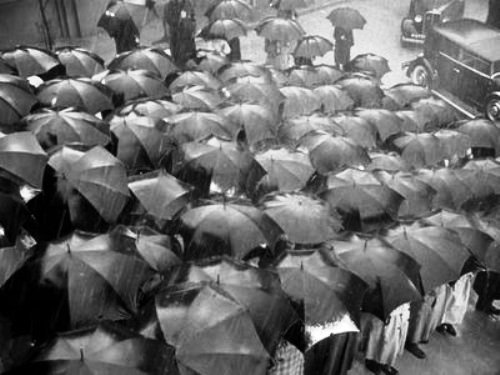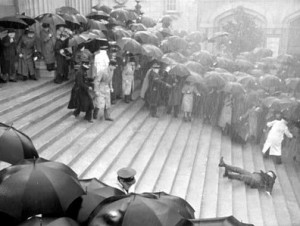A Strange Umbrella
Classical music is a strange radio format. Not only is it music of mostly dead composers, but it yokes together two thousand years of disparate styles under one umbrella. Studying the history of classical music, one perceives a direct line from Gregorian chant in the middle ages to Beethoven, Wagner, Schoenberg, and beyond in the last two centuries, with Palestrina, Bach, and Mozart in between. Although musical styles changed each generation, we still insist on calling it all classical music.
This is fascinating for a music enthusiast like myself, but it is unworkable as a radio format, let alone live concert programming. And so over the past century an abridged version of the history of Western music has come to dominate our concert halls and classical radio airwaves: starting in the late eighteenth century with Haydn and Mozart, peaking throughout the entire nineteenth century, and ending somewhere in the early decades of the twentieth century. In recent decades, Baroque instrumental music has also invaded the canon, mostly due to its powers of relaxation during morning and afternoon commutes and the evening meal. And Handel’s “Messiah” comes along every Christmas. Some composers of the later twentieth century or even the twenty-first who sound like they were writing in the 1800’s also make the cut.
To compound the strangeness, unlike most radio formats in which new “hits” constantly refresh the playlist, classical music radio (and concerts too) is dominated by a couple of hundred “classical favorites” (i.e. greatest hits) which rarely change. If you had been listening to a classical radio station in 1935, you would have heard the same Beethoven symphonies, Rossini overtures, and Tchaikovsky ballets that you hear on WBJC in 2012.
Like branches that stick out too far from the tree, music that strays from the familiar, mostly orchestral style of classical music popular with listeners gets pruned back. I love Schubert lieder, Monteverdi madrigals, and Verdi opera as well as Mozart concertos and Beethoven symphonies, but I have been exploring music all my life. It would be unreasonable for me to expect someone who enjoys Rossini’s overture to “The Barber of Seville” or Tchaikovsky’s “Andante cantabile” also to like Luciano Berio’s sound montage “Sinfonia” or the surprisingly dissonant 13th century choral organum “Viderunt omnes” by Perotin. They are acquired tastes that most people will simply never acquire. And even people who might enjoy, say, a Bartok string quartet or an Italian opera in a live performance would probably not want to turn on the radio at dinner time and hear it.
Nonetheless, that strange umbrella continues to unfold, weathering cultural storms. I will blow my own WBJC horn and say if you tune to our station on a daily basis, you will undoubtably hear some delightful music you have never heard before, because my colleagues and I doggedly seek it out. There is not a single type of classical music from the last two thousand years that does not get broadcast on WBJC. Want vocal music? The Saturday afternoon opera broadcasts, and Kati Harrison’s “Vocalise” and Sunday 8AM choral hour cover just about everything. Contemporary classical music? Our Monday through Thursday 11PM symphony concerts feature actual living, breathing composers, as well as the many twentieth century greats. And my own Friday night request show is open to anything, from Gregorian chant, to Stravinsky’s “Requiem Canticles”, to Rodgers and Hammerstein. You can even hear a Beethoven late string quartet, still considered “difficult music” by some listeners, during your dinner hour.
Tags:classical music, radio programming








2 Responses to A Strange Umbrella